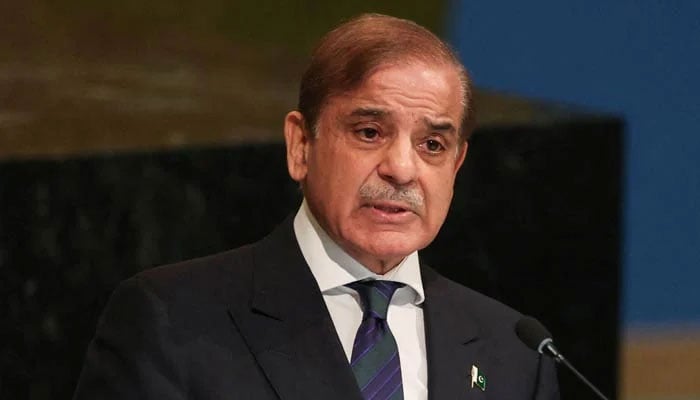ISLAMABAD: Prime Minister Shehbaz Sharif on Friday strongly condemned the Israeli cabinet’s approval of a plan to take control of Gaza City, calling it “illegal and illegitimate”.
Taking to his official X handle, PM Shehbaz said the Israel’s fresh move tantamount to a dangerous escalation in an already catastrophic war against the people of Palestine.
The premier warned that the expansion of military operations in Gaza would deepen the ongoing humanitarian crisis and derail any prospect for peace in the region.
PM Shehbaz stressed that the root cause of the tragedy lay in Israel’s prolonged and illegal occupation of Palestinian territories, adding that peace would remain elusive as long as this occupation continued.
Reaffirming Pakistan’s unwavering support for the Palestinian people, he reiterated their right to self-determination and the establishment of an independent state with Al-Quds Al-Sharif as its capital, in line with United Nations and Organisation of Islamic Cooperation resolutions.
The prime minister urged the international community to act urgently to halt Israel’s “unwarranted aggression”, safeguard civilian lives, and facilitate the immediate delivery of humanitarian aid to Gaza.
The premier’s remarks come after Israel’s military said that it will “take control” of Gaza City under a new plan approved by Prime Minister Benjamin Netanyahu’s security cabinet, touching off a wave of criticism Friday from both inside and outside the country.
Nearly two years into the war in Gaza, Netanyahu faces mounting pressure to secure a truce to pull the territory’s more than two million people back from the brink of famine and free the captives held by Israel’s foe Hamas.
The group also denounced the plan to expand the fighting as a “new war crime”, while staunch Israeli ally Germany took the extraordinary step of halting military exports out of concern they could be used in Gaza.
Under the newly approved plan to “defeat” Hamas, the Israeli army “will prepare to take control of Gaza City while distributing humanitarian assistance to the civilian population outside combat zones”, the premier´s office said Friday.
Earlier, Netanyahu had said Israel planned to seize complete control of the Gaza Strip, but did not intend to govern it.
“We don’t want to keep it,” the premier told US network Fox News on Thursday, adding Israel wanted a “security perimeter” and to hand the Palestinian territory to “Arab forces that will govern it properly without threatening us”.
Israel occupied Gaza from 1967, but withdrew its troops and settlers in 2005.
Netanyahu’s office said a majority of the security cabinet had adopted “five principles”, including demilitarisation of the territory and “the establishment of an alternative civil administration that is neither Hamas nor the Palestinian Authority”.
The new plan triggered swift criticism from across the globe, with China, Turkey, the UK and the UN’s rights chief issuing statements of concern.
